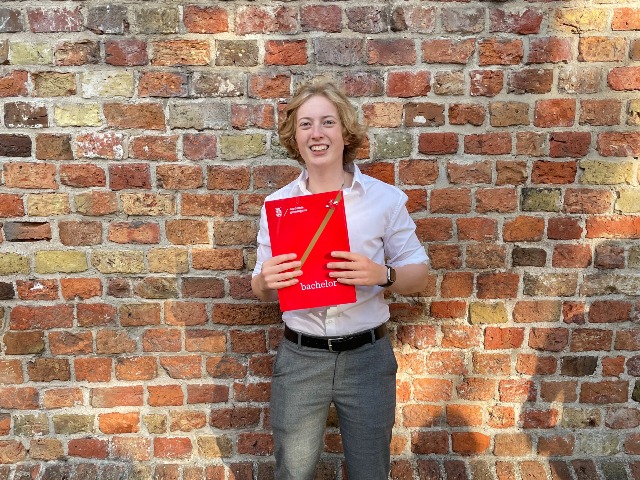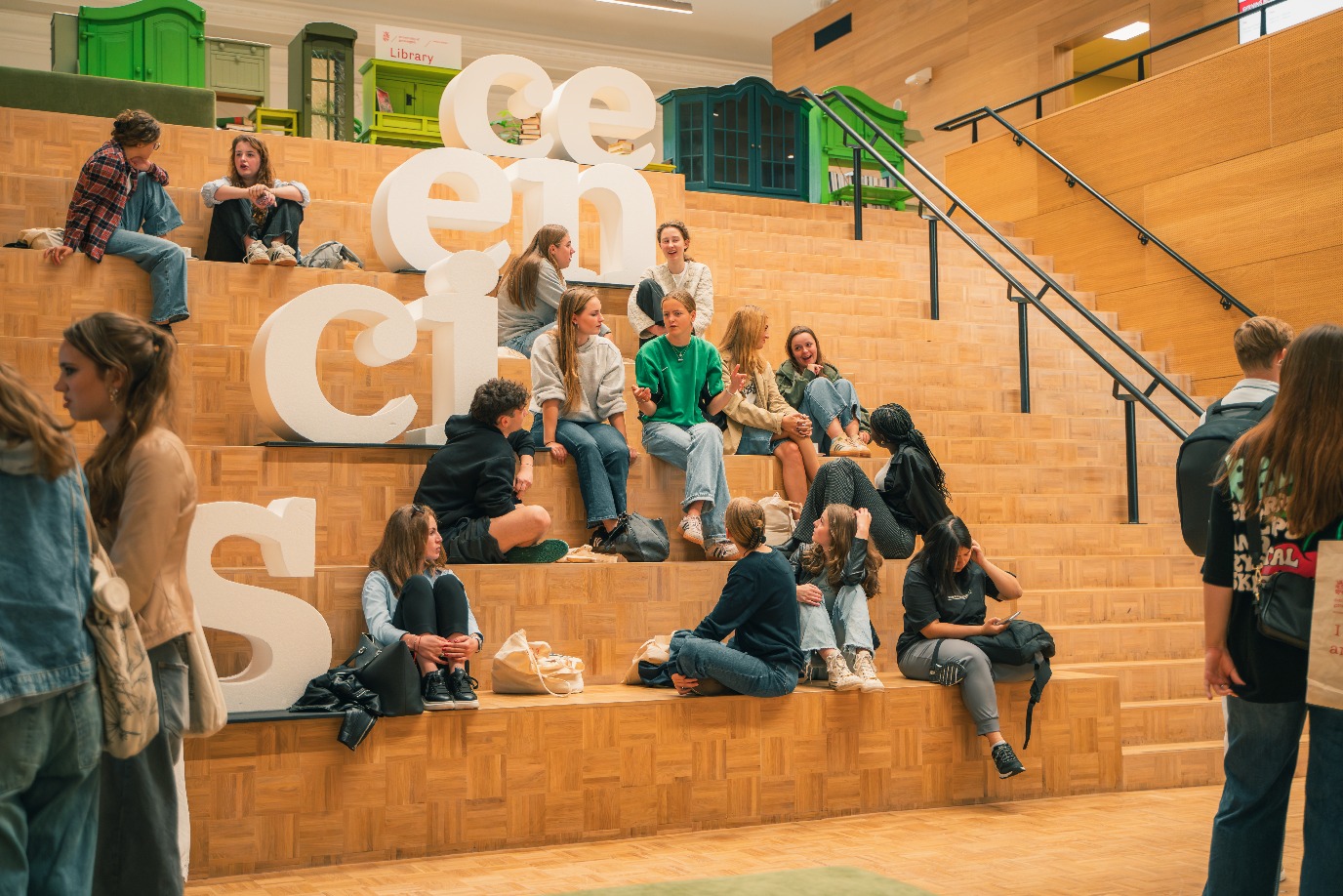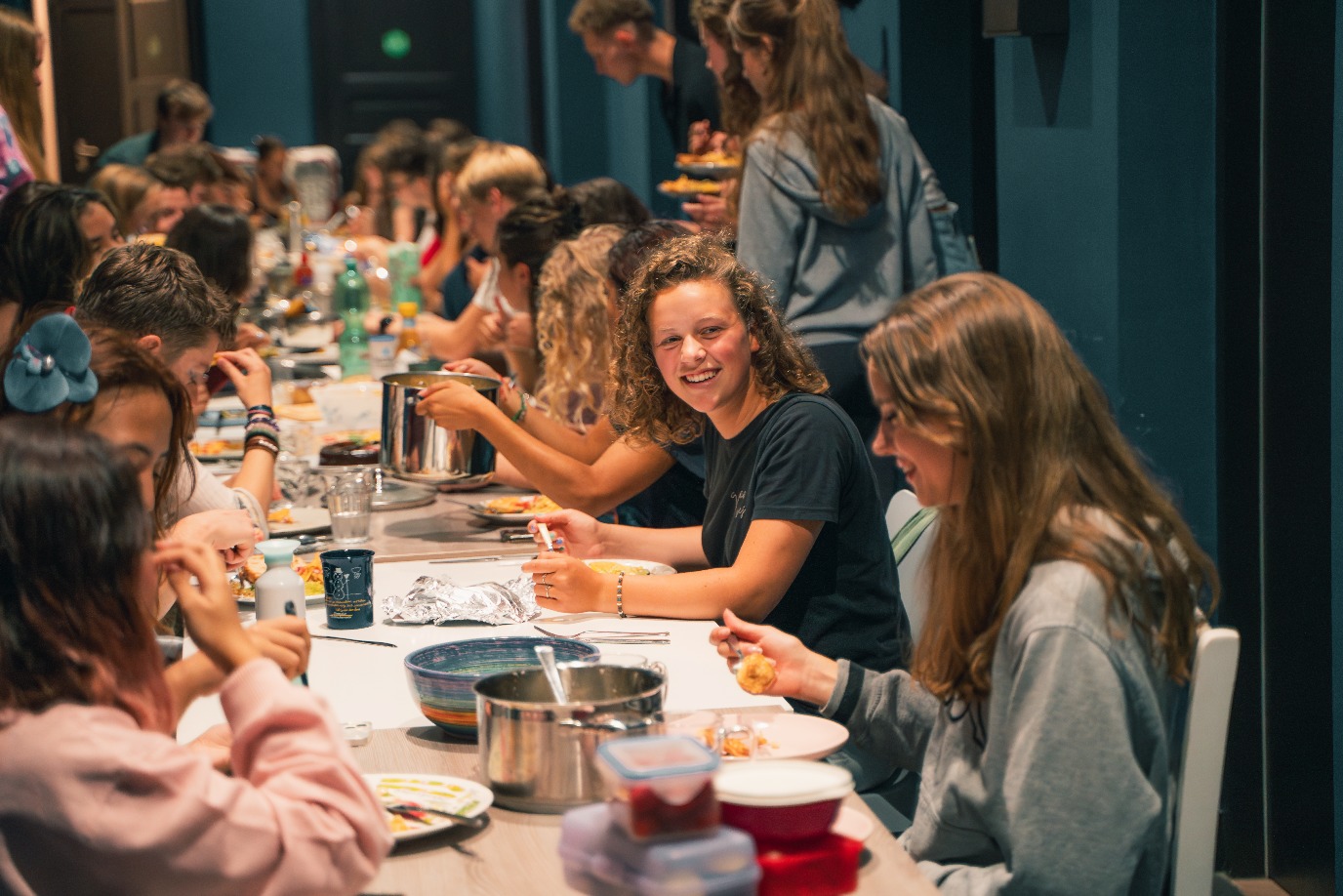Broad Degree, Endless Opportunities: BSc in Global Responsibility & Leadership for Tomorrow's Change-Makers

In this blogpost, Mette, a Global Responsibility & Leadership alumni, will take us through the programme and their favorite courses!
To begin with, what is Global Responsibility & Leadership?
The Global Responsibility & Leadership bachelor’s programme, offered at University College Fryslân in Leeuwarden, is designed for students with diverse interests who share a common goal: to find ways to contribute to tackling social, economic, and environmental challenges. This degree prepares students to lead responsibly in global issues, with a curriculum that combines theory, practical experience, and personal leadership development. Students can personalise their education through majors, gaining tools for a career in international organisations, government, and beyond! Students become an integral part of a close-knit community fostered by a very active study association where they hone extracurricular skills and collaborate on projects with peers. The campus at De Beurs is at the heart of this unique study experience!
What does the programme look like?
Mette: The first year starts broad, with six different foundation courses; from political science, to earth systems and global health. I liked this mix of courses because right after high school I was not really sure what my specific interests were. This year of foundation allowed me to dive into different areas to find the path I wanted to follow in the upcoming years.
After this, I was able to choose my major. There are three majors to choose from:
-
Politics, Philosophy, and Economics
-
Energy, Ecology & Climate
-
Psychology & Global Health
I chose the Psychology & Global Health major, with a side track in Culture studies. As I noticed that I still had very broad interests, I decided to also take some courses from different majors, which the programme supports you to do! Another highlight of the second year was the living lab; a research internship that is part of your fixed curriculum and that encourages collaboration between students and external organizations, such as NGOs and regional or national institutions. During this internship, I worked together with GGD Drenthe to develop a programme for youth healthcare in the region!
The third year opened up some doors for me to dive deeper into some of the topics that sparked my interest. This resulted in applying anthropology as well as sustainability in my Capstone project, that is the final research project of our bachelor’s. Together with one of the professors at our faculty, I came up with the idea to dive into the decreasing coal industry in the United States. I went to a small town in Kentucky for three weeks to talk to local residents about their experiences of this shift. Because of all the background I gained during the rest of my study, I was able to look at the struggles of sustainability from a different perspective.

In your experience, what was studying at a University College like?
M: For context, the Global Responsibility & Leadership programme is part of University College Fryslân. A University College (UC) is a unique higher education institution, typically part of a larger research university. UCs offer small-scale, selective, and English-taught bachelor’s programmes.
One of the main differences between a regular programme, and a University College is the small-scale education. This personally really fits the way I like to learn. Because of the small classes, our courses were very interactive and opened some interesting discussions. This, combined with the fact that University Colleges are very international, we were able to fit different perspectives of different cultures into one classroom; this definitely made the programme very unique for me!
Next to the small classes and international nature of the programme, university colleges are often very interdisciplinary. This interdisciplinarity allowed us to look at global problems from different perspectives. This is exactly what I did during my capstone!
Lastly, the programme offers a residential option. Especially with how hard it can be to find a room these days, this was very convenient for me. :) It also helped with creating an amazing, close-knit community, which I value a lot!

How is GRL different from other University Colleges’ programmes?
M: The GRL programme is all about the United Nations Sustainable Development Goals, featuring structured tracks to guide your learning. Unlike other university colleges that offer complete freedom, GRL groups subjects into specific tracks. For me, this red thread of the Sustainable Development Goals was very important; it allowed me to zoom out and look at the bigger picture of what we were learning.
Who would you say GRL is for?
M: I would say that the GRL programme is perfect for everyone with broad interests. In the beginning of my study, I really did not know what I wanted to do, but throughout the programme, I have learned what it was! I think that the programme is also interesting for students passionate about looking at social, economic, and environmental challenges from different perspectives!
And as I said before, GRL is ideal for individuals who thrive in a close-knit community and want to engage deeply with their studies while exploring broad topics like politics, ecology, and psychology.
What can a GRL graduate do afterwards?
M: To put it simply, anything you want! With the network you’ll have built, your understanding of yourself, the critical thinking skills you’ll develop, and a solid foundation in both specialised and broad knowledge, you’ll have pretty much endless opportunities.
Because I was able to find my interests in the past three years, I have found a very fitting Master’s in Anthropology and Development Studies. Here, I can apply the knowledge I have gained during this programme on more specific cases! I am not sure what my future brings, but I am convinced that the programme taught me a lot of skills (like critical thinking) that I will be able to apply in my future career!
Some other examples of what graduates end up doing are included in the Campus Fryslân faculty blog. For instance, Johan and Lea graduated GRL, then pursued a master’s in Sustainable Entrepreneurship and now they work respectively at Circular Friesland and Ecoras in the Netherlands. Mandipa is now with Deloitte, where she completed her living lab project and internship. Annemieke and Jorian stayed at Campus Fryslân for a master’s in Cultural Geography, specialising respectively in Sustainable Tourism & Society and Climate Adaptation Governance. And these are just a few examples!
Join Us on Open Day: Your Chance to Connect!
Did Mette’s story resonate with you, and are you curious to learn more about the Global Responsibility & Leadership programme? Do you or your parents have questions? Join us on Open Day, November 8th at the Exopositiezaal of the Harmony Building, in Groningen city centre! Sign up here for one of our four sessions and dive deeper into what GRL has to offer. We can’t wait to meet you!
About the author

Sometimes, we invite students and staff members to contribute to our blog page. This is one of those occasions. :)

